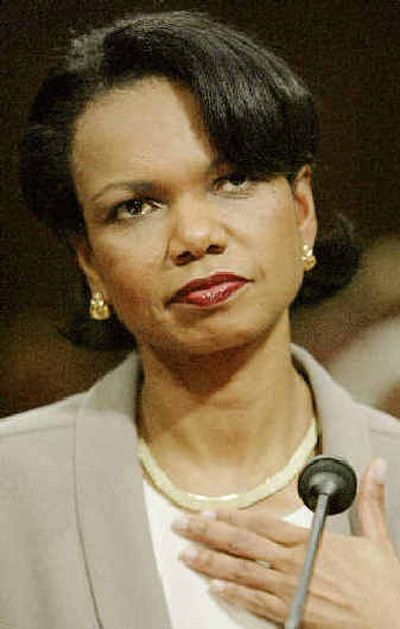Rice set to face huge challenges in new post

WASHINGTON – Starting this week, following four years inside the West Wing of the White House as President Bush’s national security adviser, Condoleezza Rice, 50, will take the global stage as she becomes secretary of state and the person in charge of selling America’s foreign policy to a skeptical world.
While serving as America’s face to the world could present a jarring transition for a woman who has thrived solo or behind the scenes, the biggest challenge might be the product she has to sell. U.S. foreign policy in the first term of the Bush administration was viewed as radical by much of the world, leading to deep rifts with traditional allies and historic levels of anger within many usually friendly quarters.
Rice, who is expected to breeze through Senate confirmation hearings beginning today and be sworn in Thursday, the same day Bush takes his oath for a second term, will focus her efforts first and foremost on Europe.
Bush recently promised a new push to sell U.S. policy abroad, and the White House has been signaling since immediately after his re-election that Europe would be the primary target of its diplomacy at the start of his second term. His first foreign visitor after the election was NATO’s secretary general and the first overseas trip of his second term will come next month when he heads to Brussels for a series of meetings with European Union and NATO leaders.
Easing tensions with Europe may be no easy task for Rice, even though she is a specialist on Russian and European issues and is already assembling a leadership team with strong experience on the continent.
That’s because many believe transatlantic relations may be at their lowest point since World War II.
But smoothing those relations, some experts say, could help America with many of the major challenges it faces in the world today, including the war in Iraq, terrorism, peace in the Middle East and nuclear proliferation.
Although Europe has been moving in its own direction since the end of the Cold War, the March 2003 American invasion of Iraq pushed the two continents even further apart.